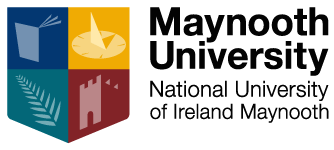| |
This module aims to foster student teachers’ agency and mind-set to be open to professional growth and learning over the course of their careers. The module is designed to encourage student-teachers to develop an integrated view of education, preparing student teachers for entry to their professional role. Students will be encouraged to apply the skills of reflective practice encountered in the module on Professional Skills, which fosters student teachers’ reflexivity on their own professional learning and that of their pupils.
In History and Policy of Education, issues in Irish education and their impact on the development of modern systems of primary education are examined. These are explored against knowledge of early systems of education and the foundations of education in Ireland with particular reference to significant national and international figures who influenced practice and policy up to an including current educational policy developments. Research informed exploration of the impact of Douglas Hyde and the Gaelic League on the revival of the Irish language through the education system will be integral to the module. The importance of Scéim na Scol will be explored and students will engage in a folklore collection initiative using their digital skillset with the National Folklore Collection Ireland focusing on the theme of Cuimhní Scoile in the primary school. A pedagogy of community engaged learning will underpin this assessment.
Content of the module will explore student-teacher’s understanding of how the world works, within a framework of global citizenship education. Individual and collective critical reflection on topics such as global inequality, debt/ trade/ aid and the ethics of using images and representations of the Global South in the classroom will be scaffolded. A world-minded approach to education which stresses the importance of values, attitudinal and skill development, will empower learners to take an active role in the promotion of social and global justice, both locally and globally.
In Psychology of Education, students are introduced to psychological science and its relevance to teaching and learning. Particular emphasis is placed on theories of cognitive development including Piaget’s Stages of Development and Vygotsky’s Social Cognitive Theory. In addition, this module supports students’ understanding of concepts of the Self, attachment, emotional regulation and possible risks and resilience in childhood.
Philosophy of Education provides an opportunity for students to explore a range of philosophical theorists which highlight issues in relation to ethical behaviours, children’s rights and the nature of education. A key objective of this module is the facilitation of, regular systematic, critical reflection in order to allow students to develop, and articulate, their own personal educational philosophy.
Sociology of Education provides an opportunity to engage with topics such as race, ethnicity, identity, types of schooling, which will support newly qualified teachers to facilitate quality teaching and learning for all pupils. Student’s will be enabled to observe the social world, make connections, understand differences, norms, cultures, beliefs. The sociology of education is the study of how social institutions and individual experiences affects education and its outcome. The topics covered in this module seek to explain how people relate with one another, how hidden structures play an important role in everyday life, how individuals behave and how all these combined impacts on education and its outcome. Sociology of education will foster student teachers’ abilities to support their pupils in achieving their full potential.
|
 FOUNDATION STUDIES
FOUNDATION STUDIES

